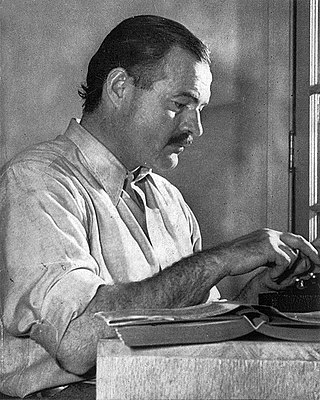
Ernest Miller Hemingway was an American novelist, short-story writer and journalist. Known for an economical, understated style that influenced later 20th-century writers, he has been romanticized for his adventurous lifestyle and outspoken, blunt public image. Some of his seven novels, six short-story collections and two non-fiction works have become classics of American literature, and he was awarded the 1954 Nobel Prize in Literature.
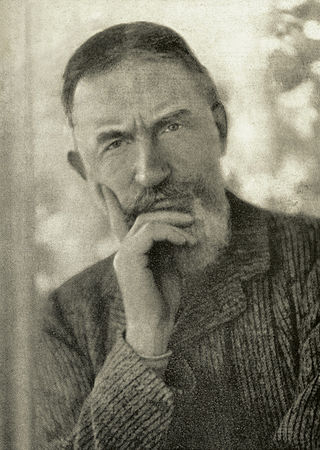
George Bernard Shaw, known at his insistence as Bernard Shaw, was an Irish playwright, critic, polemicist and political activist. His influence on Western theatre, culture and politics extended from the 1880s to his death and beyond. He wrote more than sixty plays, including major works such as Man and Superman (1902), Pygmalion (1913) and Saint Joan (1923). With a range incorporating both contemporary satire and historical allegory, Shaw became the leading dramatist of his generation, and in 1925 was awarded the Nobel Prize in Literature.
Free jazz, or free form in the early to mid-1970s, is a style of avant-garde jazz or an experimental approach to jazz improvisation that developed in the late 1950s and early 1960s, when musicians attempted to change or break down jazz conventions, such as regular tempos, tones, and chord changes. Musicians during this period believed that the bebop and modal jazz that had been played before them was too limiting, and became preoccupied with creating something new. The term "free jazz" was drawn from the 1960 Ornette Coleman recording Free Jazz: A Collective Improvisation. Europeans tend to favor the term "free improvisation". Others have used "modern jazz", "creative music", and "art music".
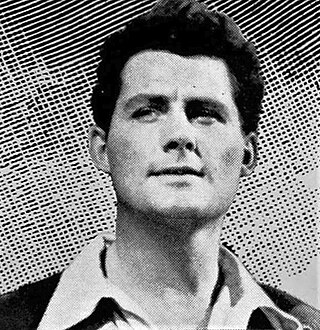
Robert Archibald Shaw was an English actor and writer. Beginning his career in theatre, Shaw joined the Shakespeare Memorial Theatre after the Second World War and appeared in productions of Macbeth, Henry VIII, Cymbeline, and other Shakespeare plays. With the Old Vic company (1951–52), he continued primarily in Shakespearean roles. In 1959 he starred in a West End production of The Long and the Short and the Tall.
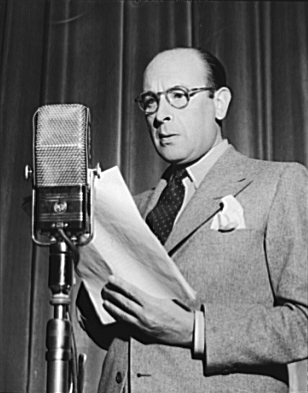
Sir Cedric Webster Hardwicke was an English stage and film actor whose career spanned over 50 years. His theatre work included notable performances in productions of the plays of Shakespeare and Shaw, and his film work included leading roles in several adapted literary classics.

Alexander Crichlow Barker Jr., known as Lex Barker, was an American actor. He was known for playing Tarzan for RKO Pictures between 1949 and 1953, and portraying leading characters from Karl May's novels, notably as Old Shatterhand in a film series by the West German studio Constantin Film. At the height of his fame, he was one of the most popular actors in German-speaking cinema, and received Bambi Award and Bravo Otto nominations for the honor.

Robert Gould Shaw was an American officer in the Union Army during the American Civil War. Born into a abolitionist family from the Boston upper class, he accepted command of the first all-black regiment in the Northeast. Supporting the promised equal treatment for his troops, he encouraged the men to refuse their pay until it was equal to that of white troops' wage.
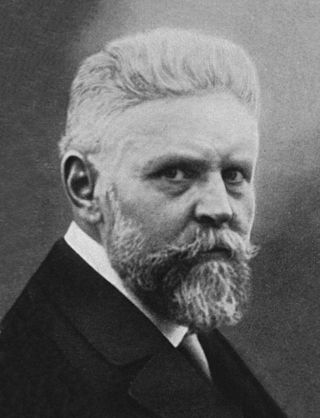
The term racial hygiene was used to describe an approach to eugenics in the early 20th century, which found its most extensive implementation in Nazi Germany. It was marked by efforts to avoid miscegenation, analogous to an animal breeder seeking purebred animals. This was often motivated by the belief in the existence of a racial hierarchy and the related fear that "lower races" would "contaminate" a "higher" one. As with most eugenicists at the time, racial hygienists believed that the lack of eugenics would lead to rapid social degeneration, the decline of civilization by the spread of inferior characteristics.
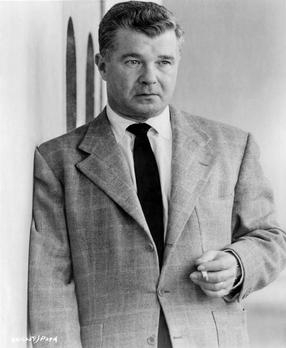
Robert Rossen was an American screenwriter, film director, and producer whose film career spanned almost three decades.

Candida, a comedy by playwright George Bernard Shaw, was written in 1894 and first published in 1898, as part of his Plays Pleasant. The central characters are clergyman James Morell, his wife Candida and a youthful poet, Eugene Marchbanks, who tries to win Candida's affections. The play questions Victorian notions of love and marriage, asking what a woman really desires from her husband. The cleric is a Christian Socialist, allowing Shaw to weave political issues, current at the time, into the story.

Benjamin Arthur Flemyng, known professionally as Robert Flemyng, was a British actor. The son of a doctor, and originally intended for a medical career, Flemyng learned his stagecraft in provincial repertory theatre. In 1935 he appeared in a leading role in the West End, and the following year had his first major success, in Terence Rattigan's comedy French Without Tears. Between then and the Second World War he appeared in London and New York in a succession of comedies.
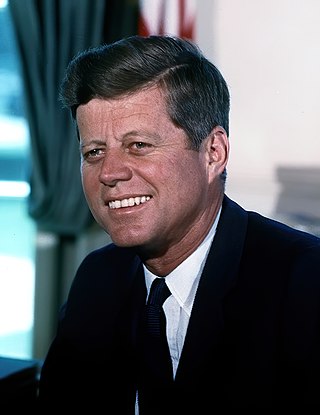
John Fitzgerald Kennedy, often referred to as JFK, was the 35th president of the United States, serving from 1961 until his assassination in 1963. He was the youngest person elected president. Kennedy served at the height of the Cold War, and the majority of his foreign policy concerned relations with the Soviet Union and Cuba. A Democrat, Kennedy represented Massachusetts in both houses of the United States Congress prior to his presidency.
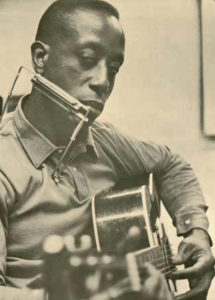
Isaiah Ross, known as Doctor Ross, was an American blues musician who usually performed as a one-man band, simultaneously singing and playing guitar, harmonica, and drums. Ross's primal style has been compared to John Lee Hooker, Blind Boy Fuller and Sonny Boy Williamson I.
Max Jacobson was a German and American physician and medical researcher who treated numerous high-profile patients in the United States, including President John F. Kennedy. Jacobson came to be known as "Miracle Max" and "Dr. Feelgood" because he administered highly addictive "vitamin shots" laced with various substances that included amphetamine and methamphetamine.

The Sun Also Rises is a 1957 American drama film adaptation of the 1926 Ernest Hemingway novel of the same name directed by Henry King. The screenplay was written by Peter Viertel and it starred Tyrone Power, Ava Gardner, Mel Ferrer, and Errol Flynn. Much of it was filmed on location in France and Spain as well as Mexico in Cinemascope and color by Deluxe. A highlight of the film is the famous "running of the bulls" in Pamplona, Spain and two bullfights.

Robert Francis Kennedy, also known by his initials RFK, was an American politician and lawyer. He served as the 64th United States attorney general from January 1961 to September 1964, and as a U.S. senator from New York from January 1965 until his assassination in June 1968, when he was running for the Democratic presidential nomination. Like his brothers John F. Kennedy and Ted Kennedy, he was a prominent member of the Democratic Party and is considered an icon of modern American liberalism.
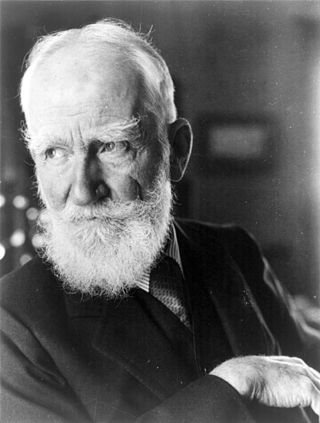
The Millionairess is a play written in 1936 by George Bernard Shaw. It tells the story of Epifania, a spoilt heiress, and her search for a suitor.
During the evening rush hour on August 24, 1928, an express subway train derailed immediately after leaving the Times Square station on the IRT Broadway–Seventh Avenue Line. Sixteen people were killed at the scene, two died later, and about 100 were injured. It remains the second-deadliest accident on the New York City Subway system, after the Malbone Street Wreck.

The Sun Never Sets is a 1939 American drama film directed by Rowland V. Lee and starring Douglas Fairbanks Jr., Basil Rathbone and Barbara O'Neil.

The presidential transition of John F. Kennedy began when he won the 1960 United States presidential election, becoming the president-elect of the United States, and ended when Kennedy was inaugurated on January 20, 1961. Kennedy had become president-elect once the election results became clear on November 9, 1960, the day after the election.

















